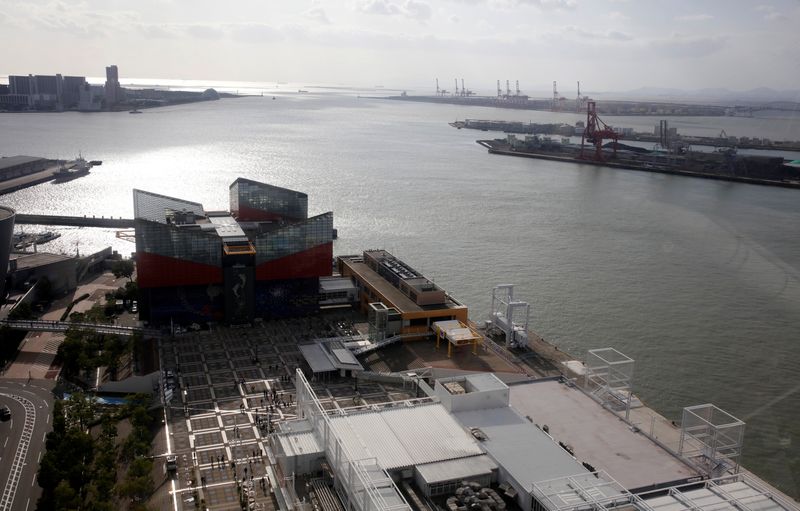By Daniel Leussink
TOKYO (Reuters) - Japanese factories posted their first rise in output in three months in February as resilience in global demand led to a rebound in car production, a welcome sign for policymakers hoping to keep the country's fragile economic recovery on track.
The increase, however, was smaller than market expectations, underscoring the lingering impact of supply chain bottlenecks and other risks such as surging costs of raw materials.
Factory output rose 0.1% in February from the previous month, official data showed on Thursday, as growing production of cars and transport equipment offset a decline in chemicals.
That meant output returned to growth after slipping 0.8% in January and 1.0% in December. The increase was weaker than a 0.5% gain forecast in a Reuters poll of economists.
The outlook for the world's third-largest economy has weakened after energy and commodity prices soared following Russia's invasion of Ukraine last month. Prices for raw materials have surged, saddling exporters with higher input costs, while supply chain disruptions have increased.
"The situation in Ukraine is likely to worsen the parts shortage further," said Takumi Tsunoda, senior economist at Shinkin Central Bank Research.
"It feels like there's a risk the recovery in output will be delayed further."
Japanese automakers and suppliers are also facing headwinds from coronavirus-related disruptions in China, the world's largest market.
Thursday's data showed output of cars and other motor vehicles gained 10.9% from the previous month in February, rebounding after a sharp contraction in January as pressure from parts shortages eased.
Manufacturers surveyed by the Ministry of Economy, Trade and Industry (METI) expected output to advance 3.6% in March and 9.6% in April.
But those forecasts, however, did not take into account any output disruptions caused by a powerful magnitude 7.4 earthquake that struck off Japan's northeastern coast on March 16, which led to plant shutdowns at Toyota Motor (NYSE:TM) Corp and other firms.

Japanese firms' production plans for the months ahead are increasingly far too optimistic, said Tom Learmouth, Japan economist at Capital Economics, highlighting possible risks going into next quarter.
"Fresh headwinds of potential supply chain disruption in Russia and China may keep the handbrake on Japanese industrial production, pushing back any rebound until later in the year."